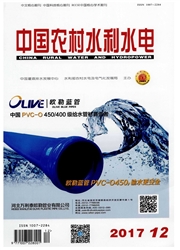

 中文摘要:
中文摘要:
流域的核心利益相关者原生态居民、企业和政府并非同时出现在流域治理的历史舞台上,他们的利益博弈也在动态发展变化,不同时期的利益诉求差异意味着合作治理契约的激励条件也存在差异。通过治理机制的演化分析发现,企业的出现打破了原生态流域治理的平衡,但改善了流域属地福利而造成了巨大的社会成本,使得政府出面治理成为必然。然而中央政府与属地政府的利益诉求并非一致,使得政府主导的治理模式陷入了困境。进一步研究发现,即使要求不再以GDP经济绩效作为地方官员的考核指标,也需要满足特定的约束条件才能使得这一政策真正发挥积极作用。通过居民、企业和政府的收益函数分析论证了政府主导的流域治理有效运行的实现机制。
 英文摘要:
英文摘要:
The core stakeholders of river basins such as original habitant,enterprises and government, has never been on the stage at the same time in the watershed governance history. Their interests and influence changed dynamically, the incentives of cooperation and governance contracts are different with the stakes of different periods. From the evolution analysis of the governance mechanism, this paper shows that the present enterprises has destroyed the balance situation of river basin eco-system, but the local benefits seem improved at the cost of heavy social loss, so the compulsory management by the government becomes necessary. While the ben- efits of central and local government are different, the government's governance get into dilemma. Further research finds that, even if higher levels of government no longer assess the local officials based on the GDP index , there is still a need to satisfy the constraints and then will play a positive role. The analysis of residents, enterprises and government revenue serves as evidence for the effective mechanism of river-basin governance by the government.
 同期刊论文项目
同期刊论文项目
 同项目期刊论文
同项目期刊论文
 期刊信息
期刊信息
